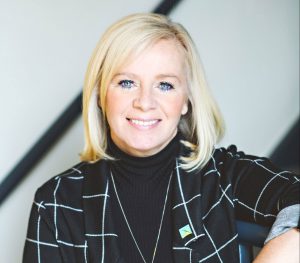WELLINGTON COUNTY – During Mental Health Week (May 2 to 8), the Canadian Mental Health Association of Waterloo Wellington (CMHA WW) is reflecting on the impacts of the past two years on local residents.
CEO Helen Fishburn said call volumes and the number of people waiting for mental health services has gone up significantly over the past two years, noting there are currently 3,678 waiting for care in the Waterloo-Wellington area.
That number represents the people who are waiting for the formal mental health and addiction system, which Fishburn said is more treatment focused.
“Then of course, we have that whole new layer of people [where] the counselling needs have really, really increased because of the pandemic,” Fishburn explained.
Although demand has increased, Fishburn noted the pandemic has also brought conversations around mental health and addiction to the forefront.
“The space that we’re in now compared to where we were through the pandemic … is dramatically different,” she said.
She explained greater awareness can be attributed to the fact that many more people are experiencing significant amounts of anxiety, worry, depression and stress about the uncertainty of the pandemic and what the future holds.
“Through the pandemic, there’s been a lot of layers of trauma,” Fishburn added, referencing the surge of the Omicron variant, anti-mandate protests and the current war in Ukraine.
“It just represents so many additional layers of stress and worry for people, and so that has really created a new experience.”
She added “people now really understand what it feels like to have a significant mental health concern or to feel that level of significant distress, which has really created a new level of compassion and empathy for people who have struggled for a very long time.”

HELEN FISHBURN
With this year’s Mental Health Week theme being empathy, Fishburn referred to it as “the perfect storm.
“It’s been a really, really tough two years,” she said. “There’s a cumulative impact of that and it really feels like this week’s Mental Health Week couldn’t come at a better time.”
With the sixth wave of the pandemic still looming and with high transmission rates in the community, Fishburn said the pandemic is still creating a significant amount of distress for people.
“We’ve had this cumulative impact of the last two years,” she explained. “So the timing is perfect for us to first of all recognize mental health.
“It’s an opportunity to kind of take permission to slow down, to self-reflect and to really check in with ourselves and other people.”
As we go through Mental Health Week, Fishburn is reminding people to check in with those around us.
“People maybe that you’re a bit worried about, do a conscious check in and coming from a place of empathy, where we’re really able to say to someone, ‘I see, I hear, I understand, I want to understand what this is like for you,’ rather than coming from a place of judgment and shame,” she explained.
She noted people sometimes “should” others, telling them what they should do, which isn’t helpful.
“We want to listen, we want to understand what their experience has been like,” she explained. “Everybody’s journey through this pandemic has been so different.
“So Mental Health Week is really that opportunity just to check in to listen to each other, to validate everybody’s experience and really just to say, ‘what do you need to be able to continue to strengthen how you feel emotionally, and what supports and networks do you have in place?’”
In terms of the demand, Fishburn said CMHA WW has seen roughly a 40 per cent increase overall, including a significant increase in some of the specialized programs.
“There’s certain pockets of the population that have struggled more than others,” she said.
“But generally speaking, we’re 40% higher in our referrals than we were pre-pandemic,” she added. “And we do not see that those levels or those volumes are going to adjust back to the pre-pandemic rates.
“And that’s a really significant concern for us. We’re not funded to respond to 40% more volumes.”
Fishburn explained that although volume has increased, the organization’s base funding hasn’t, leaving it struggling to keep up with the demand.
She said CMHA WW is doing everything it can to support people that need support and bridge them to care that’s available, noting there’s never a wait time for crisis services.
CMHA is currently asking for an 8% base budget increase for all agencies across Ontario. Locally, that means an additional $2.65 million.
“I think what we really realized through the pandemic, is that all of us have experienced a new level of struggle,” Fishburn explained.
“Through the disruption and through the distress of a global pandemic, it’s really hit us all very close to home and right in the heart.”
She reiterated the pandemic has allowed the community to shift to a different level of conversation around mental health.
“The mental health conversations and check-ins are so much more available and conscious, and we really reduced that stigma in terms of talking about it,” she said.
“But we know that we still have a lot more to do in that area, we know that there are still people that are suffering in silence even though we’ve made some great progress.”
By reducing the stigma, Fishburn said it’s opened up the space for people to be able to share their own vulnerability, and also to support other people in their vulnerability.
But with that, she noted, comes many more people reaching out for care.
“So that’s why we really need to address those increased needs,” she said. “It takes a lot of courage for people to reach out, so we want to make sure we’re there for them.”
She added CMHA WW is continuing to advocate for more resources to respond to the increased need in the community.
The organization will also be advocating with the province for the base budget increase so that it can address the operational costs across its organizations.
“I feel like the community has really embraced mental health [but] one thing we can’t do is just ‘accept,’” Fishburn said.
“We can’t be complacent.”




